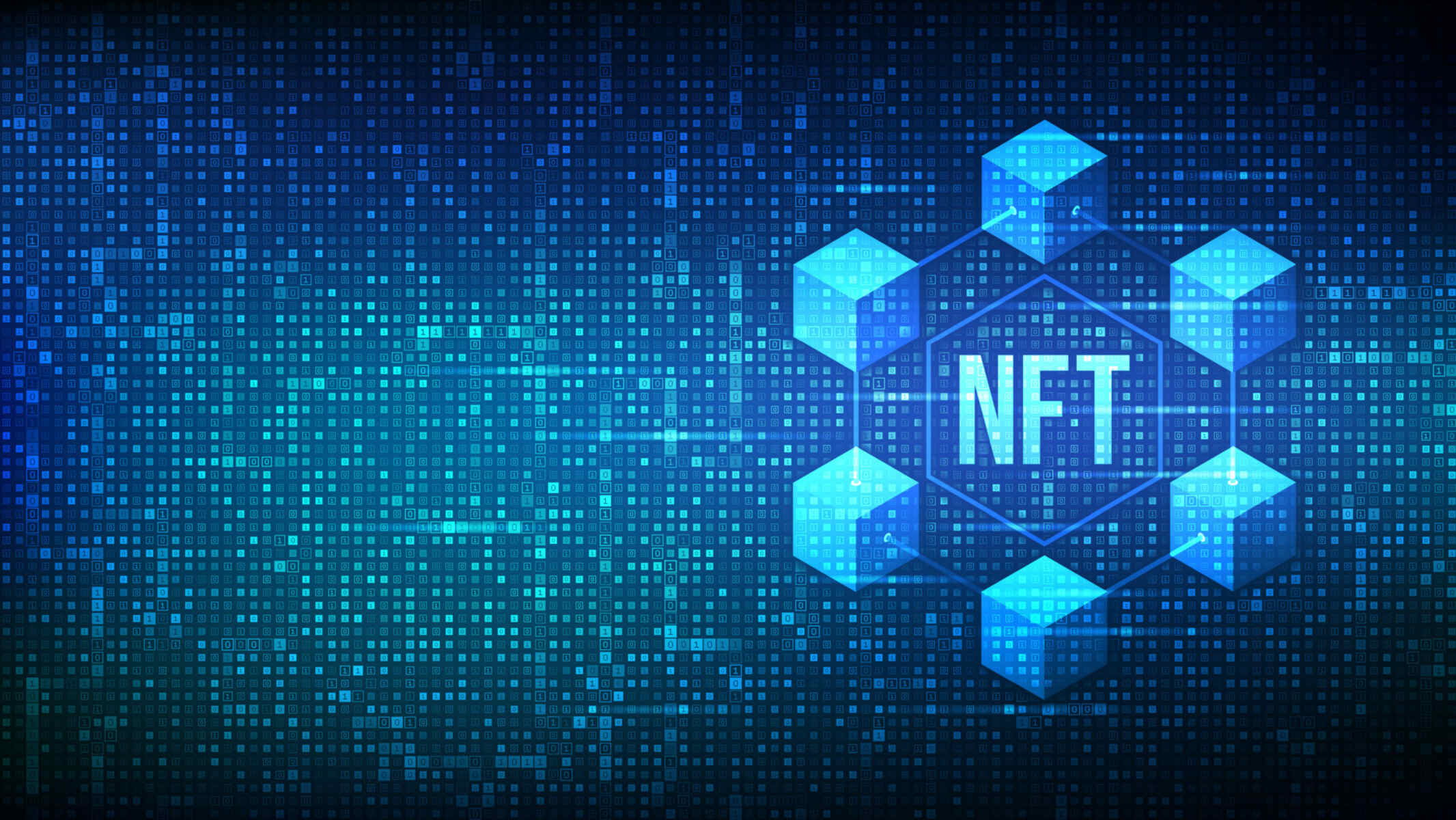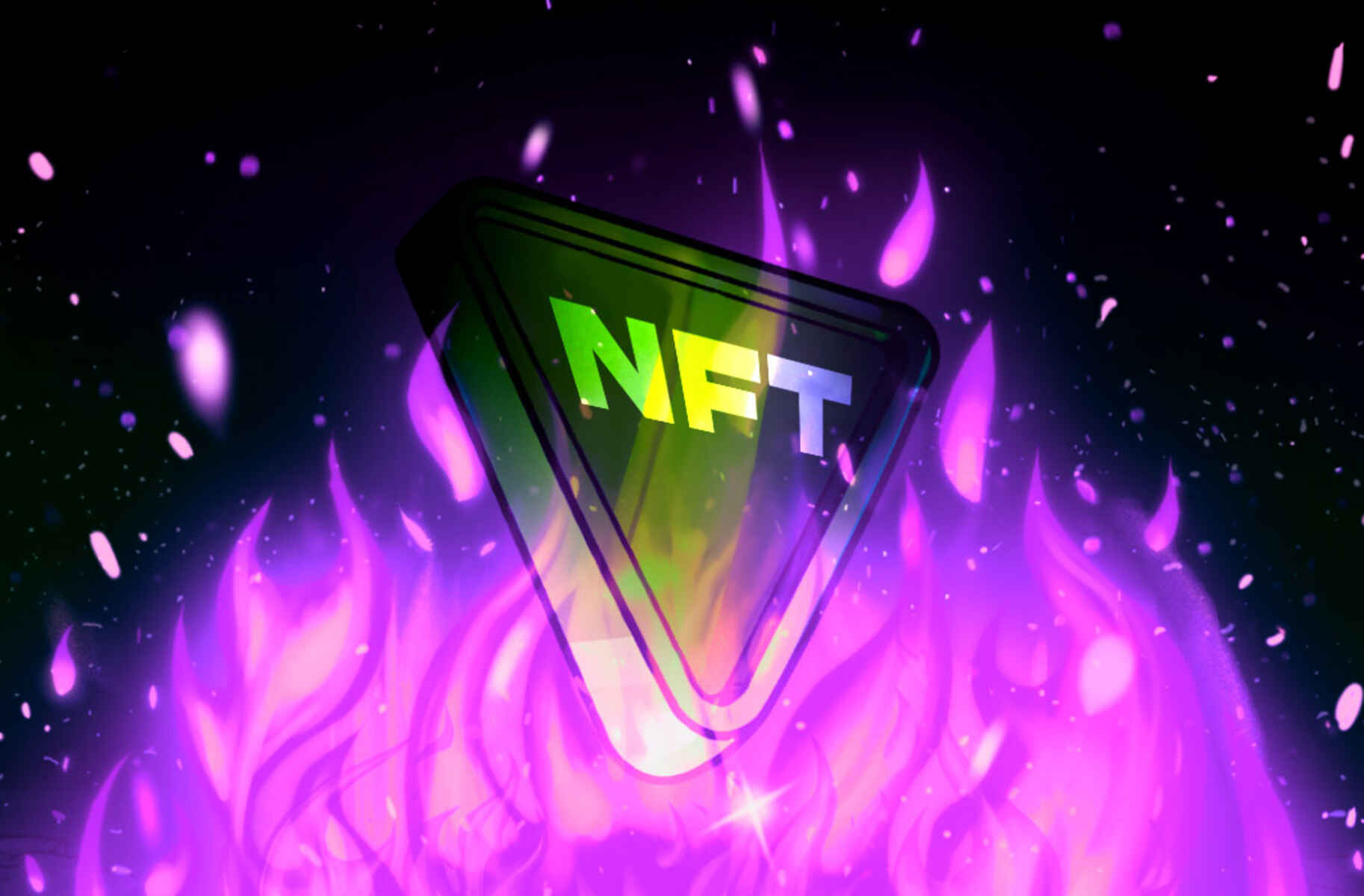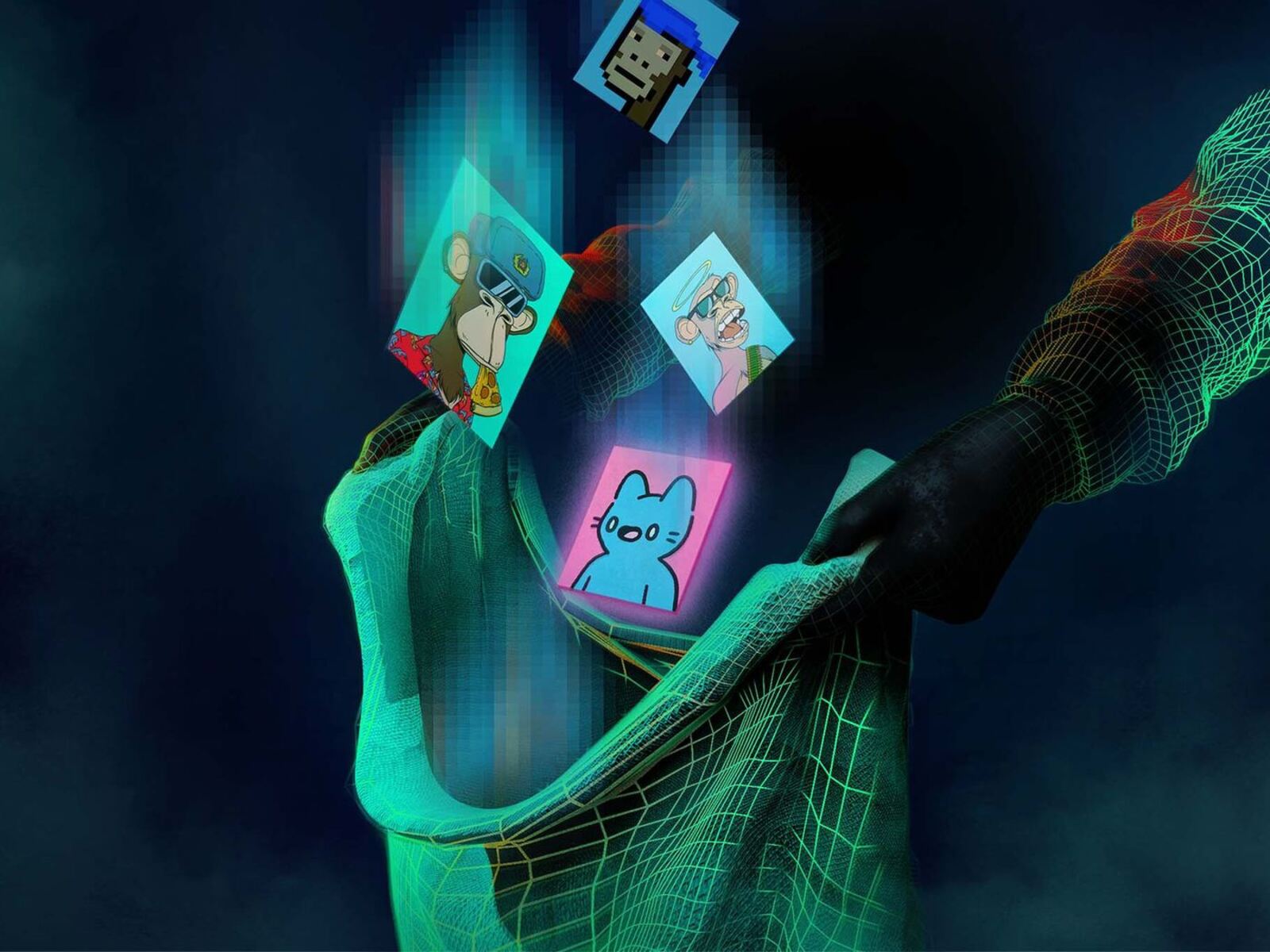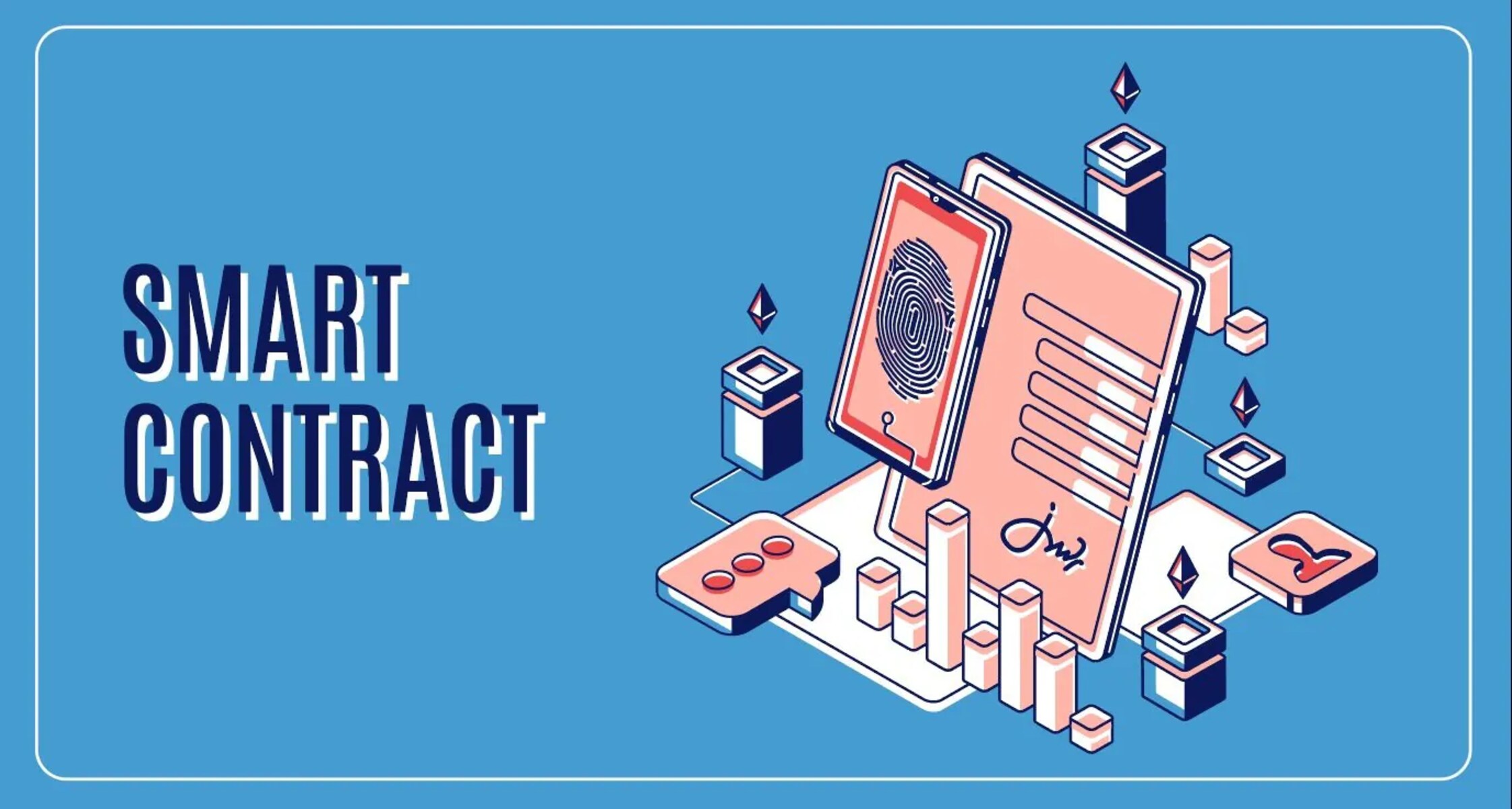Introduction
Welcome to the world of Non-Fungible Tokens (NFTs) and Smart Contracts! In recent years, the rise of blockchain technology has revolutionized various industries, with NFTs gaining significant attention. NFTs have become a popular way to represent ownership of digital assets, including art, music, collectibles, and more. These unique tokens are securely stored on a blockchain, making them easily verifiable and tradable.
But what role do Smart Contracts play in the realm of NFTs? Smart Contracts are self-executing contracts with the terms of the agreement directly written into code. They are deployed on a blockchain network and automatically execute actions when predefined conditions are met. In the context of NFTs, Smart Contracts facilitate the creation, ownership, and transfer of these digital assets, providing transparency and security to participants.
Understanding the relationship between NFTs and Smart Contracts is essential for anyone looking to explore the world of NFTs. In this article, we will delve into how NFT Smart Contracts work, their benefits, real-world examples, challenges, and considerations surrounding their use.
So, whether you’re an artist wanting to explore the digital art space or an investor diving into the world of collectibles, keep reading to discover the intriguing world of NFT Smart Contracts!
What are NFTs?
Non-Fungible Tokens, or NFTs, are a type of digital asset that represents ownership or proof of authenticity of a unique item or piece of content. Unlike cryptocurrencies such as Bitcoin or Ethereum, which are interchangeable and have identical values, NFTs are one-of-a-kind and cannot be exchanged on a like-for-like basis.
An NFT contains metadata that defines its characteristics, including its origin, ownership history, and specific traits that make it distinctive. This information is stored on a blockchain, typically using the Ethereum blockchain, which provides a decentralized and immutable record of the NFT’s existence.
NFTs have gained significant popularity in the art world, enabling artists to showcase and sell digital artwork. They have also expanded into various other domains such as music, virtual real estate, virtual goods in games, and even tweets. The unique nature of NFTs, combined with the security and transparency provided by blockchain technology, has opened up new possibilities for creators and collectors.
One key aspect of NFTs is that they have the ability to include royalties for the original creator. This means that if an NFT is resold in the future, the original artist or creator may receive a percentage of the sale value. This feature has the potential to revolutionize the way artists are compensated for their work, allowing them to benefit from subsequent sales instead of only receiving income from the initial sale.
With NFTs, ownership is verified and easily transferable, eliminating the need for intermediaries such as galleries or auction houses. Digital artists now have an avenue to monetize their creations directly, reaching a global audience without geographical constraints. Similarly, collectors can securely buy, sell, and collect unique digital assets, expanding their collections in ways that were previously unimaginable.
While NFTs have garnered enormous attention and have seen some record-breaking sales, it is important to understand that their value is driven by market demand. The concept of ownership in the digital world is still evolving, and the market for NFTs continues to experience rapid growth and innovation.
What are Smart Contracts?
Smart Contracts are self-executing contracts with the terms of the agreement directly written into code. They were first introduced by Ethereum, a blockchain platform that enables the creation and execution of decentralized applications (DApps). These contracts eliminate the need for intermediaries, such as lawyers or notaries, by automatically executing predefined actions once the specified conditions are met.
Smart Contracts are stored on a blockchain and are publicly accessible, transparent, and tamper-proof. The code that comprises a Smart Contract outlines the conditions and rules of the agreement, ensuring that all parties involved are bound by the contract’s terms.
One significant advantage of Smart Contracts is that they provide trust and security in a decentralized manner. The execution of the contract is governed by the underlying blockchain network, which means that no single entity has control over the contract’s operations. Additionally, since Smart Contracts are executed automatically, there is no room for human error or manipulation.
Smart Contracts have the potential to revolutionize a wide range of industries. They can be used for various purposes, including financial transactions, supply chain management, real estate transactions, voting systems, and more. By leveraging Smart Contracts, organizations can streamline operations, reduce costs, and ensure transparency and accountability.
For example, in financial transactions, Smart Contracts can facilitate peer-to-peer lending, automate the payment of interest and principal, and enforce the agreed-upon terms without the need for intermediaries. Similarly, in supply chain management, Smart Contracts can track the movement of goods, verify their authenticity, and trigger automatic payments between parties once certain milestones are achieved.
Furthermore, since Smart Contracts are programmable, they can perform complex calculations and logic. They can incorporate multi-signature functionalities, time-based triggers, payment splits, and other customized conditions to accommodate the specific needs of a contract. This flexibility allows for the creation of sophisticated agreements that can adapt to changing circumstances.
It is important to note that while Smart Contracts bring numerous advantages, they are not infallible. The code underlying a Smart Contract must be carefully audited and tested to ensure its security and reliability. Bugs or vulnerabilities in the code can lead to unintended consequences and potential losses.
Overall, Smart Contracts are revolutionary tools built on blockchain technology that bring efficiency, transparency, and trust to various industries. Their potential to automate and streamline processes has captured the attention of organizations and individuals worldwide, propelling us into a future where traditional contracts can be replaced by self-executing code.
What is the Relationship Between NFTs and Smart Contracts?
The relationship between NFTs and Smart Contracts is integral to the functioning and value proposition of NFTs. Smart Contracts facilitate the creation, ownership, and transfer of NFTs, providing the necessary framework for their existence and operation.
When an NFT is created, a Smart Contract is typically deployed to define the specific properties and rules of that NFT. The Smart Contract contains the metadata of the NFT, such as its unique identifier, ownership information, and any additional attributes that make it distinct.
One of the key benefits of using Smart Contracts for NFTs is that they ensure transparency and immutability. All transactions and changes in ownership are recorded on the blockchain and cannot be altered retroactively. This means that the entire history of an NFT, including its creation, ownership transfers, and any associated royalties, can be easily tracked and verified by anyone with access to the blockchain.
Additionally, Smart Contracts provide a mechanism for the transfer of ownership of NFTs. Through the execution of the Smart Contract, ownership of an NFT can be securely transferred from one address on the blockchain to another. This enables seamless and trustless peer-to-peer transactions, allowing artists to sell their NFTs directly to collectors without the need for intermediaries.
Moreover, Smart Contracts can include customizable functionalities and conditions specific to NFTs. For example, a Smart Contract can be designed to automatically distribute royalties to the original creator of an NFT whenever it is resold. This feature ensures that artists can continue to benefit from the appreciation of their work even after the initial sale.
The relationship between NFTs and Smart Contracts also provides creators and collectors with peace of mind regarding the authenticity and provenance of digital assets. By leveraging blockchain technology, NFTs and their associated Smart Contracts create an immutable and tamper-proof record of ownership, reducing the risk of fraud or counterfeit replicas.
It is important to note that while Smart Contracts provide the framework for NFTs, they are not exclusive to NFTs alone. Smart Contracts can be used for a variety of purposes beyond NFTs, such as financial transactions, decentralized applications, and more. Their versatility and potential for automation make them a powerful tool in the blockchain ecosystem.
In summary, the relationship between NFTs and Smart Contracts is symbiotic, with Smart Contracts serving as the underlying technology that enables the creation, ownership, and transfer of NFTs. By leveraging the transparency, security, and programmability of Smart Contracts, NFTs have emerged as a groundbreaking way to represent ownership of digital assets and redefine the concept of ownership in the digital age.
How NFT Smart Contracts Work
NFT Smart Contracts are the backbone of the NFT ecosystem, ensuring the secure and transparent creation, ownership, and transfer of unique digital assets. Let’s take a closer look at how NFT Smart Contracts work:
1. Creation: When an artist or creator wishes to mint an NFT, they typically interact with a Smart Contract deployed on a blockchain platform, most commonly Ethereum. The Smart Contract contains the necessary code and metadata templates to generate a unique NFT. Artists can specify various attributes of the NFT, such as the name, description, image, and any additional traits that make it distinct.
2. Ownership and Transfer: Once an NFT is created, it is assigned to an address on the blockchain, representing the initial owner. Ownership of the NFT is verified and recorded on the blockchain, ensuring transparency and immutability. When the owner decides to transfer the NFT to someone else, they initiate a transaction that executes the Smart Contract’s transfer function. This updates the ownership record on the blockchain, transferring the NFT to the new owner’s address.
3. Royalties: Many NFT Smart Contracts include royalty functionalities, ensuring that the original creator receives a percentage of subsequent sales of the NFT. This is accomplished through the use of programmable conditions within the Smart Contract’s code. When an NFT is resold, the Smart Contract automatically calculates and distributes the agreed-upon royalty to the creator’s address, providing ongoing compensation for their work.
4. Verification: The transparency of NFT Smart Contracts allows anyone to verify the authenticity and ownership of an NFT. By interacting with the Smart Contract on the blockchain, individuals can access the metadata and transaction history of the NFT. This verification process provides confidence to potential buyers and collectors, ensuring that they are purchasing genuine and legally-owned digital assets.
5. Interoperability: NFT Smart Contracts, especially those built on the Ethereum blockchain, provide interoperability and compatibility with different NFT marketplaces and platforms. This means that NFTs created through one platform can be bought, sold, and showcased on other platforms that support the same underlying Smart Contract standards. This interoperability enhances the liquidity and accessibility of NFTs.
It’s important to understand that the functionality and features of NFT Smart Contracts can vary depending on the specific implementation and customization. Different blockchain platforms and standards may have their own unique Smart Contract frameworks for NFTs, each with its own set of benefits and limitations.
In summary, NFT Smart Contracts facilitate the creation, ownership, and transfer of unique digital assets by leveraging the power of blockchain technology. These Smart Contracts provide transparency, security, and programmability, ensuring that NFTs can be created, bought, sold, and verified with confidence in a decentralized and trustless manner.
Benefits of NFT Smart Contracts
NFT Smart Contracts offer several benefits that have contributed to the widespread adoption and success of NFTs. Let’s explore some of these key advantages:
1. Authenticity and Verification: NFT Smart Contracts provide a secure and immutable record of ownership, verifying the authenticity and provenance of digital assets. This transparency enables collectors and buyers to verify the legitimacy of an NFT, reducing the risk of counterfeit or fraudulent transactions.
2. Traceability and Transparency: Every transaction involving an NFT is recorded on the blockchain, creating a transparent and auditable trail of ownership. This allows artists to track the movement and resale of their creations, ensuring proper attribution and compensation. Collectors can also have confidence in the ownership history of an NFT they wish to purchase.
3. Programmability: NFT Smart Contracts are highly programmable, allowing for customized functionality and conditions. This enables the incorporation of royalties, time-based triggers, bidding mechanisms, and other features to meet the specific needs of artists, creators, and collectors. Smart Contracts empower creators to benefit from future sales and provide collectors with unique interactive experiences.
4. Elimination of Intermediaries: NFT Smart Contracts eliminate the need for intermediaries, such as galleries, auction houses, or licensing agencies. Artists can directly showcase and sell their digital creations to a global audience, retaining more control over the distribution and monetization of their work. Collectors can also engage in seamless peer-to-peer transactions without the involvement of third parties.
5. Global Reach and Accessibility: NFTs and their associated Smart Contracts enable artists and collectors to engage with a global community. The digital nature of NFTs means that they can be easily shared, bought, and sold across borders, enabling broader exposure and accessibility for creators. This global reach expands opportunities for artists and provides collectors with a diverse range of artwork from around the world.
6. Expansion of Revenue Streams: NFT Smart Contracts open up new revenue streams for artists and creators. Beyond the initial sale, artists can receive royalties on secondary market resales, ensuring ongoing compensation and participation in their work’s financial success. This has the potential to transform the business model for artists, providing them with long-term income opportunities.
7. Liquidity and Fractional Ownership: NFTs can be fractionally owned, meaning that multiple individuals or entities can collectively own a percentage of an NFT. Smart Contracts enable the fractionalization of NFT ownership, allowing fans and investors to own a share of high-value assets. This brings liquidity to the market, as these fractionalized shares can be bought, sold, and traded.
Overall, NFT Smart Contracts revolutionize the way digital assets are created, bought, sold, and owned. They provide authenticity, security, transparency, and programmability, benefiting artists, collectors, and investors in the ever-evolving world of NFTs.
Examples of NFT Smart Contracts in Use
NFT Smart Contracts have been utilized in a variety of industries and have seen significant adoption in recent years. Let’s explore some examples of how NFT Smart Contracts are being used:
1. Digital Art: NFTs have exploded onto the art scene, enabling digital artists to sell their work as unique digital assets. NFT Smart Contracts provide a mechanism for artists to tokenize their artwork, verify ownership, and automate the distribution of royalties. Artists like Beeple have made headlines with record-breaking NFT sales, highlighting the potential of NFT Smart Contracts in the art world.
2. Collectibles and Gaming: NFTs have found a natural home in the world of collectibles and gaming. Blockchain-based games, such as CryptoKitties and Axie Infinity, use NFT Smart Contracts to create unique in-game items and characters that can be bought, sold, and traded by players. These NFTs allow players to truly own their digital assets and potentially earn income through trading or gameplay.
3. Music and Royalties: NFTs are being used to revolutionize the music industry by empowering musicians to sell their music as NFTs and receive royalties for subsequent sales. NFT Smart Contracts ensure that artists receive a percentage of the profits each time their music is resold. This provides a new revenue stream for artists and a direct connection with fans.
4. Virtual Real Estate: In virtual worlds, such as Decentraland and The Sandbox, NFT Smart Contracts are used to enable the buying, selling, and ownership of virtual land and properties. Users can purchase NFTs representing parcels of virtual land and monetize them through virtual businesses, events, and experiences. NFT Smart Contracts ensure secure ownership and transfer of these virtual assets.
5. Memorabilia and Licensing: NFTs are being used to tokenize memorabilia and collectibles from the sports and entertainment industry. These NFTs can represent items such as game-worn jerseys, autographed merchandise, or exclusive behind-the-scenes footage. NFT Smart Contracts ensure that the authenticity and ownership of these items can be easily verified, providing fans with new opportunities to own and trade unique memorabilia.
These examples only scratch the surface of the diverse applications of NFT Smart Contracts. From virtual fashion, ticketing, and intellectual property rights to digital identities and content monetization, NFT Smart Contracts continue to push the boundaries of what is possible in the digital world.
It’s important to note that while NFTs and NFT Smart Contracts have shown immense promise, there are still ongoing discussions around sustainability, environmental impact, and the long-term value of digital assets. The evolving nature of the NFT space means that we can expect to see even more innovative uses of NFT Smart Contracts in the future.
Challenges and Considerations with NFT Smart Contracts
While NFT Smart Contracts have brought significant advancements and opportunities, there are also challenges and considerations that need to be addressed. Let’s explore some of the key challenges and considerations surrounding NFT Smart Contracts:
1. Environmental Impact: One prominent concern associated with NFTs is the environmental impact of the blockchain networks on which they reside, particularly in the case of high-energy-consuming proof-of-work blockchains like Ethereum. The energy consumption and carbon footprint of NFT transactions have raised questions about the sustainability of the NFT space and the need for more eco-friendly solutions.
2. Scalability and Network Congestion: As the popularity of NFTs continues to grow, scalability and network congestion have become significant challenges. During peak periods, network congestion can result in slow transaction processing times and high fees. Improving the scalability of blockchain networks and optimizing Smart Contracts for efficiency will be crucial to support the increasing demand for NFT transactions.
3. Legal and Intellectual Property Issues: NFTs raise legal and intellectual property considerations that require careful attention. Issues such as copyright infringement, unauthorized use of intellectual property, and ownership disputes can arise in the NFT space. Ensuring that NFT Smart Contracts comply with existing laws and regulations, and establishing clear guidelines for ownership and licensing rights, will be essential to protect the rights of creators and investors.
4. Market Volatility and Bubble Concerns: The rapid rise of NFTs has also raised concerns about market volatility and the potential for a speculative bubble. Prices of NFTs have experienced significant fluctuations, and there is ongoing debate about the long-term value and sustainability of digital assets represented by NFTs. Investors and participants in the NFT market need to exercise caution and conduct thorough research to make informed decisions.
5. Standardization and Interoperability: NFT standards and interoperability among different blockchain platforms and NFT marketplaces remain a challenge. Currently, there are various NFT standards (e.g., ERC-721, ERC-1155) and different marketplaces may have their own unique approaches, making it more complex for creators and collectors to navigate the ecosystem and ensure compatibility and liquidity across platforms.
6. Data Privacy and Security: NFT Smart Contracts rely on the blockchain’s transparent nature, which raises concerns about data privacy. While ownership details are publicly accessible, ensuring the privacy and security of sensitive information linked to NFTs is crucial. Striking the right balance between transparency and data privacy protections will be essential to foster trust in the NFT ecosystem.
As the NFT space evolves, it is important for industry stakeholders, including artists, creators, developers, and regulators, to tackle these challenges and consider the ethical, legal, and environmental implications of NFT Smart Contracts. By addressing these concerns effectively, NFTs and Smart Contracts can continue to drive innovation and empower creators and collectors worldwide.
Conclusion
NFT Smart Contracts have revolutionized the way we perceive ownership and value in the digital world. Through the combination of Non-Fungible Tokens (NFTs) and Smart Contracts, artists, creators, and collectors have found new opportunities and possibilities.
NFTs have allowed digital creators to monetize their work directly, reaching a global audience without geographical limitations. Artists can sell digital art, musicians can tokenize their music, and gaming enthusiasts can own virtual assets, all made possible through NFT Smart Contracts.
The transparency, security, and programmability provided by Smart Contracts have brought trust and efficiency to the NFT space. Artists can track the ownership and movement of their creations, ensuring proper attribution and compensation. Collectors can verify authenticity and freely trade NFTs, engaging in peer-to-peer transactions without intermediaries.
However, with the rapid growth of NFTs, challenges and considerations have emerged. Environmental impact, network scalability, legal issues, market volatility, and data privacy are among the challenges that need to be addressed in the NFT ecosystem.
As the NFT space evolves, it is important for stakeholders to collaborate and work towards sustainable solutions. Improving blockchain technology’s energy efficiency, enhancing network scalability, developing standardized frameworks, and addressing legal and privacy concerns will be vital for the long-term success and adoption of NFT Smart Contracts.
Despite the challenges, NFT Smart Contracts continue to captivate artists, collectors, and enthusiasts alike. They offer unprecedented opportunities for creators to establish ownership and monetization of digital assets, while granting collectors the ability to own unique pieces of digital art, virtual goods, and experiences.
As we move forward, it is crucial to find a balance between innovation and responsibility in the realm of NFT Smart Contracts. By doing so, we can further unlock the potential of this exciting technology and shape a sustainable and inclusive future for the world of digital ownership.

























